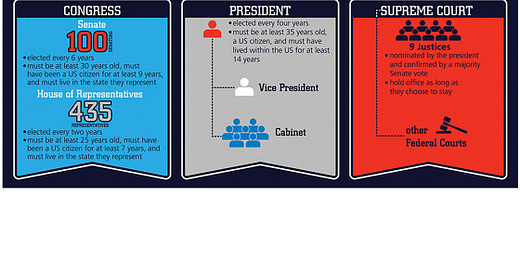Is democracy Done?
Is democracy failing?
Democracy is increasingly perceived as having weaknesses. Balancing minority and majority interests is one. Republican democracy is designed to address the tensions in this arrangement. But it has resulted in too much power residing in the hands of the minority. Consequently, initiatives desired by the majority can be slowed or stopped by the minority. Compromise normally moderates these tensions but the collapse of compromise cripples this particular pressure release value.
America is awash in propaganda of every stripe, kind and source. In an era of hyper-propaganda, freedom of speech, a key feature of American democracy, becomes a weakness because it compromises the basis of political compromise. If the people are unable to establish a common fact basis, there can be no rational, or at least reasonable, debate. The perception of the end of truth is enabled by the collapse of critical thinking skills and a misperception of information as having the same status as evidence. Debate is the primary pressure release valve in democracies. Remove jaw-jaw and all you are left with is war-war (attributed to Churchill but in fact MacMillian).
The right to bear arms is a weakness because it can be used to encourage armed resistance to legitimate governmental authority. Indeed, the manipulation of freedom of speech to nullify the idea of legitimacy of government authority, makes armed resistance to government a patriotic duty.
Bad luck, unanticipated events, and policy reversals demand resolute and swift responses. Unlike authoritarianism, democracy can not be accused of these policy making strengths. Tough challenges are magnified by incompetence. The quality of people seeking a career in public service has precipitously declined. This is because the incentive structure for participation in politics has changed. Improving the lives of constituents through passing legislation is not rewarded quite like using social media to attack the appearance, beliefs, or motives of others. This has fundamentally altered acceptable conduct in political discourse.
In the 21st century democracy rarely attracts intelligent, educated, skilled, experienced, and well motivated candidates interested in the public good. It tends to attract those who like to make noise and cause trouble. They are far more popular than their leaders. Accordingly, leadership gives into these types out of fear, accelerating the race to the bottom. The consequence of these trends is as challenges to democracy rise so too does the degree of incompetence of those charged to solve difficult problems. Incompetence is a force multiplier of bad luck. It serves to further undermine democracy as a desirable form of governance.




